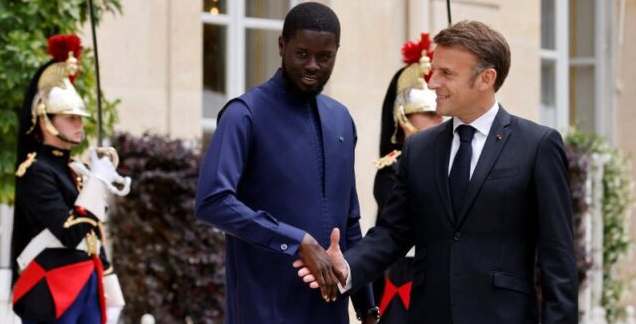N’Djamena – The African landscape is witnessing a seismic shift in relations with France as Chad demands the withdrawal of French forces from its territory. Meanwhile, Senegal is revisiting the dark chapters of its colonial history, fueling a broader reexamination of France’s role in Africa.
In a decisive move, the government of Chad has formally requested France to remove its troops, signaling a dramatic pivot in the nation’s foreign and military policy. For decades, Chad has been a cornerstone of France’s military presence in Africa, hosting troops as part of the broader counterterrorism operations in the Sahel.
Chadian officials cited growing dissatisfaction with the dynamics of the relationship, describing it as a one-sided affair that no longer serves the country’s interests. Criticisms range from perceived overreach by French forces to their limited effectiveness in addressing Chad’s pressing security challenges.
“The time has come for Chad to assert full sovereignty over its affairs,” declared a senior government spokesperson. “We can no longer tolerate external actors undermining our dignity under the guise of partnership.”
The move mirrors growing anti-French sentiment across Francophone Africa, where populations increasingly view French involvement as a relic of colonial exploitation. Niger, Mali, and Burkina Faso have recently taken similar actions, pointing to a continental wave of resistance against neo-colonial influence.

While Chad asserts its independence, Senegal is taking a reflective approach by revisiting its painful colonial past. This year, the West African nation commemorates key moments of its resistance to French domination, including the bloody suppression of local uprisings and the exploitation of Senegalese soldiers as “tirailleurs” during France’s colonial wars.
The public discourse has been further ignited by revelations of atrocities committed during the colonial period, including forced labor, land expropriation, and the erasure of indigenous culture. Many Senegalese are demanding reparations and a formal apology from France for the enduring scars left by its colonial policies.
“We must confront our history to reclaim our identity,” said a leading Senegalese historian during a recent symposium. “Only by acknowledging the truth can we move toward genuine independence.”
Chad’s demand for French withdrawal and Senegal’s historical reckoning come amid a growing wave of African nations reasserting their sovereignty. From protests against French military bases to campaigns for economic self-determination, the continent is making it clear that the era of paternalistic relationships is over.
France, once the dominant power across much of West Africa, now faces an existential challenge to its influence in the region. The rise of new global players like China, Russia, and Turkey has offered African nations alternative partnerships, further eroding France’s standing.
Chad’s decision to “send France packing” and Senegal’s focus on historical accountability symbolize a broader movement toward reclaiming autonomy and rewriting the narrative of African independence. Whether these actions lead to lasting changes or temporary disruptions, one thing is certain: Africa’s relationship with France is undergoing a profound transformation.
As African nations navigate this new era, the lessons of history serve as a guide—reminding leaders and citizens alike of the price of freedom and the necessity of vigilance in safeguarding sovereignty.

